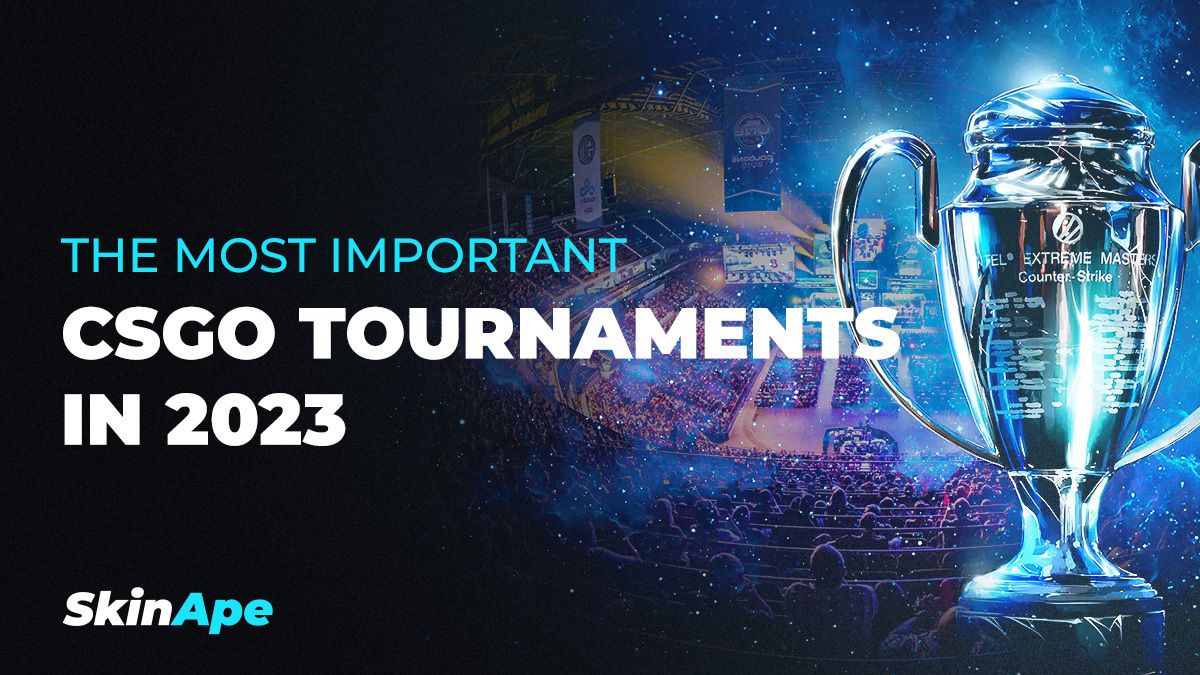The Hookup Critic
Your go-to source for honest reviews and tips on dating and relationships.
Crouch, Jump, Win: Secrets Behind CSGO Pro Tournament Triumphs
Discover the insider tips and strategies that CSGO pros use to dominate tournaments. Unlock the secrets to their success!
Understanding the Meta: Key Strategies for CSGO Pro Tournament Success
Understanding the meta in Counter-Strike: Global Offensive (CS:GO) is crucial for teams aiming to achieve success in professional tournaments. The meta, or the game’s most effective tactics available, is constantly evolving due to updates, new strategies, and shifts in gameplay styles. Teams must stay informed about current trends, including weapon balances, map rotations, and character utilization, to maintain a competitive edge. Key strategies for navigating this landscape include analyzing professional gameplay, practicing specific tactics in scrims, and fostering communication among teammates to adapt quickly to meta changes.
Another essential element for CSGO pro tournament success is the importance of team synergy and adaptability. Successful teams often have players who can seamlessly switch roles based on the evolving meta. This adaptability means regularly reviewing gameplay footage and discussing potential adjustments in tactics. Furthermore, participating in online qualifiers and analysis sessions helps refine strategies and build strong team chemistry. By focusing on both the greater meta and individual player strengths, teams can position themselves for triumph in the highly competitive landscape of CS:GO tournaments.

Counter-Strike is a highly popular first-person shooter game that pits teams of terrorists against counter-terrorists. Players have access to various weapons and gear, including the powerful awp gungnir, known for its one-shot kill capability. The game emphasizes teamwork, strategy, and precise aiming, making it a competitive favorite in the esports scene.
The Psychology of Winning: How Top Teams Prepare for CSGO Championships
The psychology of winning plays a crucial role in the success of top teams as they prepare for CSGO championships. Understanding the mental aspects of competition can give teams a significant edge over their opponents. Key psychological elements include team cohesion, mental resilience, and a focused mindset. Teams that cultivate a strong sense of unity are better equipped to handle the pressures of high-stakes environments. This unity allows players to trust one another, enhancing their overall performance. Additionally, mental resilience helps them bounce back from setbacks, ensuring they remain psychologically fit during crucial matches.
Moreover, preparation techniques such as visualization and strategic mindset training further bolster a team's performance. Players often engage in visualization exercises where they mentally rehearse scenarios they may encounter during a championship, building confidence and enhancing their decision-making skills. Strategic mindset training involves analyzing past performances, both wins and losses, to extract valuable lessons that inform future strategies. By integrating these psychological strategies into their routine, teams position themselves not only to compete but to thrive in the demanding atmosphere of CSGO championships.
Common Mistakes: What Separates Amateur Players from Pro Success in CSGO
One of the most significant common mistakes that separates amateur players from professional success in CSGO is their approach to teamwork and communication. Amateur players often underestimate the importance of coordinating with their teammates, leading to disjointed strategies and missed opportunities. In contrast, professional players emphasize constant communication, sharing information about enemy positions, coordinating tactics, and making real-time decisions as a cohesive unit. Developing effective communication skills and understanding the value of teamwork can drastically improve an amateur player's performance.
Another critical mistake made by amateur players is their lack of consistent practice and review of gameplay. While many casual players may log hours in-game, they often fail to analyze their plays effectively or learn from their mistakes. Professionals, on the other hand, engage in reflective practice, where they review gameplay footage, identify areas for improvement, and focus on developing specific skills, such as aiming or map knowledge. By dedicating time to both practice and analysis, amateur players can begin to bridge the gap between their current skill level and that of the pros.